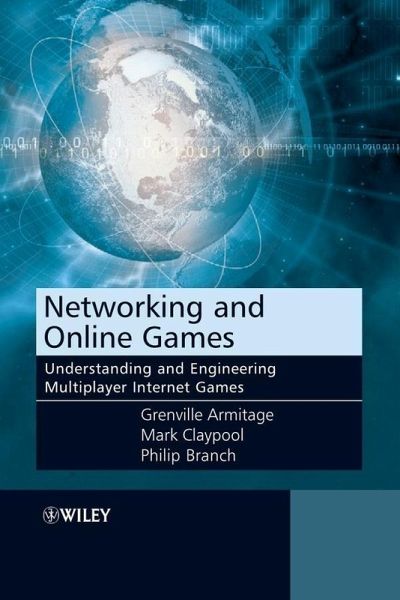
Networking and Online Games (eBook, PDF)
Understanding and Engineering Multiplayer Internet Games

PAYBACK Punkte
0 °P sammeln!
The computer game industry is clearly growing in the direction of multiplayer, online games. Understanding the demands of games on IP (Internet Protocol) networks is essential for ISP (Internet Service Provider) engineers to develop appropriate IP services. Correspondingly, knowledge of the underlying network's capabilities is vital for game developers. Networking and Online Games concisely draws together and illustrates the overlapping and interacting technical concerns of these sectors. The text explains the principles behind modern multiplayer communication systems and the techniques underl...
The computer game industry is clearly growing in the direction of multiplayer, online games. Understanding the demands of games on IP (Internet Protocol) networks is essential for ISP (Internet Service Provider) engineers to develop appropriate IP services. Correspondingly, knowledge of the underlying network's capabilities is vital for game developers. Networking and Online Games concisely draws together and illustrates the overlapping and interacting technical concerns of these sectors. The text explains the principles behind modern multiplayer communication systems and the techniques underlying contemporary networked games. The traffic patterns that modern games impose on networks, and how network performance and service level limitations impact on game designers and player experiences, are covered in-depth, giving the reader the knowledge necessary to develop better gaming products and network services. Examples of real-world multiplayer online games illustrate the theory throughout. Networking and Online Games: * Provides a comprehensive, cutting-edge guide to the development and service provision needs of online, networked games. * Contrasts the considerations of ISPs (e.g. predicting traffic loads) with those of game developers (e.g. sources of lag/jitter), clarifying coinciding requirements. * Explains how different technologies such as cable, ADSL (Asymmetric Digital Subscriber Line) and wireless, etc., affect online game-play experience, and how different game styles impose varying traffic dynamics and requirements on the network. * Discusses future directions brought by emerging technologies such as UMTS (Universal Mobile Telephone Service), GPRS (General Packet Radio Service), Wireless LANs, IP service Quality, and NAPT/NAT (Network Address Port Translation/Network Address Translation) * Illustrates the concepts using high-level examples of existing multiplayer online games (such as Quake III Arena, Wolfenstein Enemy Territory, and Half-Life 2). Networking and Online Games will be an invaluable resource for games developers, engineers and technicians at Internet Service Providers, as well as advanced undergraduate and graduate students in Electrical Engineering, Computer Science and Multimedia Engineering.
Dieser Download kann aus rechtlichen Gründen nur mit Rechnungsadresse in D ausgeliefert werden.












